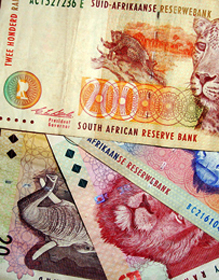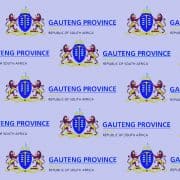|
Getting your Trinity Audio player ready...
|
 By Mark Heywood, executive director of Section 27
By Mark Heywood, executive director of Section 27
This article first appeared in the Mail & Guardian on 5 April 2013. Read the original version here.
On the edges of Diepsloot stands a half-completed municipal building. Once intended as a library and offices, it was surrendered to decay before it even came to life. A few years ago, it seemed to symbolise a governmental intent to recognise and modernise Diepsloot. Now it is just an unexplained shell, a free supply of building material for locals.
It must have cost tens of millions of rand before construction was abandoned. One guesses that its halt was related to corruption: another dodgy tender to another incapable contractor. A corpse that bears witness to the findings of the auditor general on municipal mismanagement.
After 1994 political commentators should have been wise to the likelihood that corruption would become a blight on our new democracy. The arms deal shows how the new government was immediately prey to an established global elite of corruptors, people well trained in statecraft, aware of opportunities for grand theft.
Observers would have done well to point out, then, that the government would be at risk from a new generation of home-grown baby criminals, who would make corruption a growth industry and a redistributive system. Good "business" planning could turn poorly managed municipalities, provinces and government departments into personal financiers. All that would be required would be a lack of morality and, occasionally, the willingness to kill. Had political scientists stressed these risks at the time, our then bona fide government and its exhilarated, trusting citizenry might have been less naive.
Corruption is defined by Corruption Watch as "the abuse of public resources for private gain" and, indeed, the reports of the auditor general, public protector and others show that the state's resources offer easy pickings. Public-sector corruption robs the public purse of an estimated 10% of the government's annual procurement budget. According to Willie Hofmeyr, formerly the head of the Special Investigating Unit, between R25-billion and R30-billion of the government's procurement budget is lost to corruption each year.
Despite these grand sums, however, society still does not seem to appreciate that corruption is not just an aberration. Corruption has established its own political economy. It accounts for a significant chunk of business activity. It flourishes because short-sighted corporate planning has led to economic stagnation in many of the traditional economic areas. Most manufacturing industries are shrinking. Old businesses remain (mainly) in old hands.
Unemployment is massive and upward mobility within employment is restricted. People who cannot find productive employment in the private sector find it in the state, where controls are lax.
Mines for corruption
Worse, unbridled corruption creates a vicious circle that then deepens the economic impasse. Corruption involves the theft of value created through real economic production. It is the theft of money, originally collected as tax, intended for reinvestment in economically or socially productive parts of society. Instead, this value exits the economy. It cannot be invested in the real economy because it must be hidden. So it is salted away in hidden accounts, spent on imported luxury items, houses and cars.
The corruptee uses ill-gotten capital gains to purchase property from the old rich. The result: the old rich get richer, the new rich get status. Money circulates, but only within a small sector of society. Finally, there is a terrible social cost.
The most common mines for corruption are municipalities and the public education and health systems. For example, about R20-billion is stolen every year from the public and private health sectors. This theft makes people sick – literally. People who do not get treatment are less able to progress at school or work. Money must be taken from their own almost-empty purses to compensate for that stolen from the public purse. Interestingly, the R20-billion stolen every year corresponds roughly with the estimated out-of-pocket expenditure on health. A similar situation faces the education system, where there is grand theft of money for books, school meals and school infrastructure. And, again, the effects of theft are contagious. Pupils' lack of access to books and to standard technologies of the modern age (computers and the internet) has a negative impact on their qualifications and thus their employability.
So the vicious circle of corruption spins on, contributing to poor education and health, poor employment opportunities, proclivity to crime and back to corruption. Round and round. The question is: What can be done to break it?
Since Mangaung, the ANC has appeared intent on cleaning up its act. But it is not clear whether this is considered temporarily necessary for its 2014 election campaign, or whether there is now a deeper understanding of the political economy of corruption. The test will not be in words or committees, but in action. Will the zest with which the state has proved itself capable of acting against Julius Malema be permitted against other senior officials with sticky fingers? Will the construction cartel be prosecuted? Will the ANC and other parties allow corrupt officials to continue to abuse the notion of "innocent until proved guilty" to hold on to office?
The power is in our hands. With just over a year until the 20th anniversary of South Africa's first free, democratic elections, the challenge will be for the electorate to make halting corruption a burning issue for 2014 and link its eradication to tangible demands for social justice.









